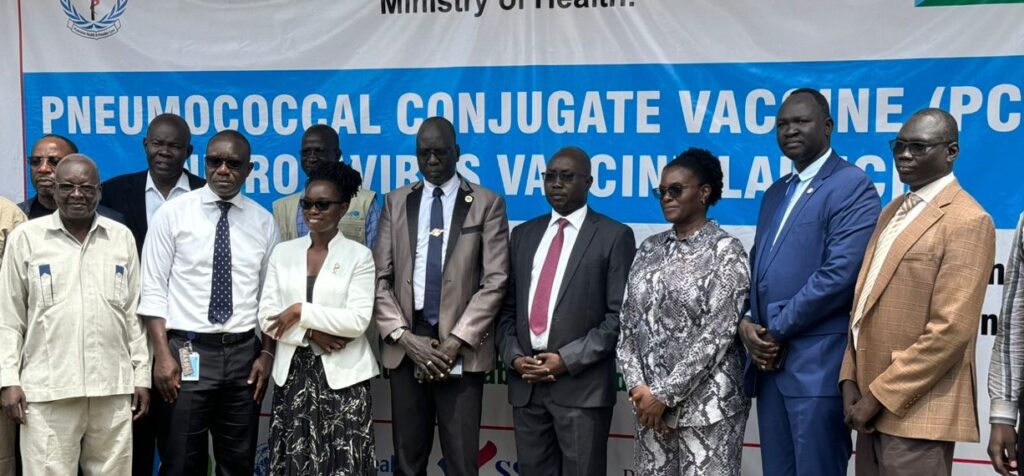South Sudan has introduced the pneumococcal conjugate vaccine (PCV) and rotavirus vaccine into its national immunization program in a bid to protect children under 5 from deadly diseases.
The rollout, launched Tuesday in the capital, Juba, targets pneumonia and rotavirus-induced diarrhea—two leading causes of child mortality in the country.
Dr. Emily Koito, speaking on behalf of South Sudanese Women in Medicine (SWIM), called the initiative a “public health breakthrough” and the result of years of advocacy and collaboration.
“This is a shared vision where no child dies from preventable diseases,” she said.
Koito credited the government, health workers, and international partners—including Gavi, the Vaccine Alliance—for supporting the effort.
Gavi granted South Sudan a co-financing waiver to facilitate the vaccine rollout. Other key partners, such as UNICEF, the World Health Organization, USAID, the U.K. and the Bill & Melinda Gates Foundation, provided financial and technical assistance.
“While we’ve worked to inform and prepare the public, our work is far from done,” Koito said, noting concerns over health system readiness, overlapping campaigns and equity gaps. She emphasized the need to include private health facilities in vaccine distribution.
Koito urged health officials to sustain the effort beyond the launch. “This must be the start of a stronger immunization culture—a national investment, not a donor-dependent aspiration,” she said.
UNICEF representative Chieng Ubia called the initiative a matter of “equity, access and child survival,” urging caregivers to bring their children for vaccination.
WHO representative Dr. Mutale Senkwe Nsakashalo highlighted vaccines’ impact in Africa, where more than 50 million children have been saved since the launch of the Expanded Program on Immunization in 1974. However, he noted significant gaps in South Sudan’s vaccine coverage.
According to WHO’s 2024 Country Profile, only 51% of counties met the 95% target for Penta 3 vaccine coverage, while 83% reported unvaccinated children. The new vaccines aim to address these disparities.
A catch-up campaign will immunize children aged 12 to 59 months who missed earlier doses, while routine immunization will ensure long-term protection.
Dr. Justin Tongun, director of Al Sabbah Children’s Hospital, stressed the urgency of the vaccines, citing nearly 20 years of treating severe cases.
“This ward behind me is always full—designated for acute watery diarrhea caused by rotavirus,” he said. Data collected at the hospital helped justify the vaccine’s introduction.
Tongun expressed hope that hospitalizations would drop sharply but cautioned that vaccine access alone isn’t enough. “Uptake is the challenge—we must encourage parents to vaccinate their children,” he said.




